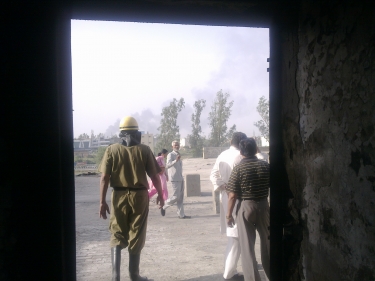
Studies show that thousands of people die of numerous occupational accidents and diseases across the world every year. Only a small proportion of the victims is compensated for damages caused by the occupational hazards and accidents. In the developing countries the proportion of the compensated victims is smaller and in the unorganised sector it is almost non-existent.
It is estimated that every three minutes one worker dies of an occupational injury or illness and every second at least three workers are injured in the world. According to The Hindu Survey (1993), every year 1.8 lakh workers die and 11 crore get injured in occupational accidents.
Despite some laws that indirectly cover occupational safety and health, in a labour-intensive economy like India, the employers unabatedly use obsolete and hazardous technology exposing the labour to high risks. State law enforcing machinery is inadequate and ineffective. It is a depressing tale of prolonged and unspecified reactions of human body exposed to several hazardous substances and untested chemicals, and reveals the indifference of the society, government, industry and trade unions towards workers’ health and safety.
The concerned authorities which are responsible to enforce the applicable laws such as the Workman Compensation Act, the Factories Act, ESIS etc., are generally inactive and their attitude is labour unfriendly. Workers cite many instances when the concerned authorities hobnob with the factory owners to circumvent the laws through technical loopholes. If some of them either out of their conscience or some external pressure act duly, they do not have the basic information such as the names and addresses of the victims. This is due to the fact that the workers in the informal sector generally do not have legal status as workers because the employers do not maintain any records of their employees such as attendance register, wage pay voucher, EPF, ESI, etc., which amounts to violation of laws.
The absence of organisational process further hinders enforcement of the laws, and the workers, under constant threat of losing their livelihood or even life, at times stay away from raising the issue of occupational safeguards and persist with their labour despite knowing the imminent dangers lurking in their workplace. Totally vulnerable, they are left completely at the mercy of employers.